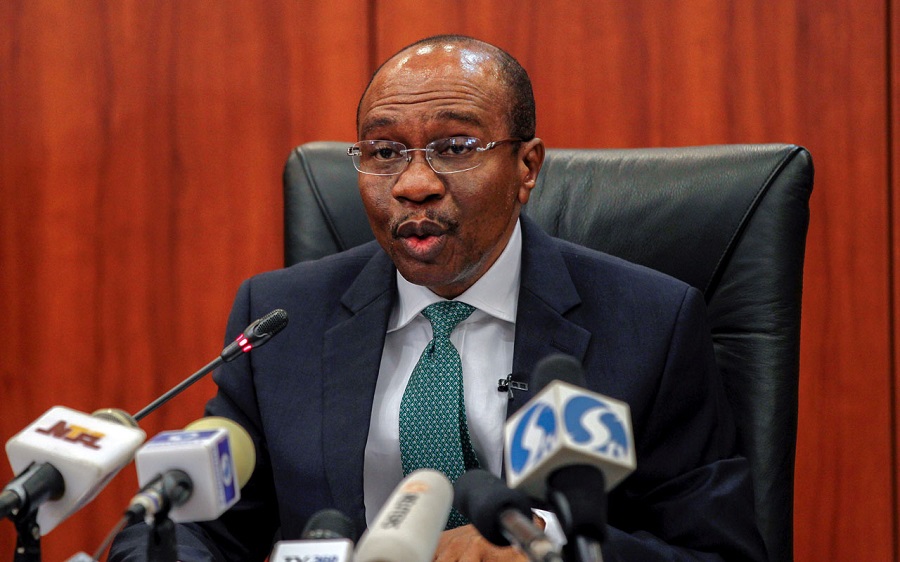The exchange rate between the naira and dollar at the black market has depreciated by about 33.7% and counting since the Central Bank of Nigeria (CBN) banned the sale of dollars to bureau de change (BDC) operators.
When the CBN announced the ban on dollar sales to BDC operators in July 2021, the naira was trading around N500/$ on the black market. But now it is trading at an average of N755/$1. This is a 33.7% depreciation of the exchange rate on the black market.
Similarly, the exchange rate between the naira and the US dollar at the official Investors and Exporters (I&E) window has depreciated to N441.13/$1 from N410/$1 recorded In July 2021. The disparity between the official and parallel market rate has also widened ti about N255/$1.
The naira has continued to plunge on multiple markets despite multiple interest rate hikes and policies expected to boost the value of the naira.
Flashback
The Central Bank of Nigeria (CBN) took an uncompromising stance to stop providing foreign exchange to Bureau De Change operators (BDCs) at the 137th Monetary Policy Meeting on July 27, 2021.
- At the time, the exchange rate on the black market had crossed the N500/$1 ceiling instigating a response from CBN Governor Godwin Emefiele who blamed BDC operators for the exchange rate depreciating accusing them of partaking in “illegal activities” when foreign exchange is supplied to them and they then sell on the black market.
- He also claimed BDC operators were fabricating false FX scarcity to make “abnormal” profits, endangering the Nigerian financial system.
- He stated that the dollarization of the Nigerian economy, the subversion of the cashless policy, the joint ownership of multiple BDC by the same owners to obtain various FX, and regrettably, international organizations and embassy patronage of illegal FX dealers were all detrimental to the CBN’s goals for price stability.
After the CBN ban, the Association of Bureaux De Change Operators of Nigeria (ABCON) urged the Central Bank of Nigeria (CBN) to abandon the fixed exchange rate and allow the naira to float.
Despite calls to float the Naira, the Central Bank of Nigeria (CBN) continues to intervene in the foreign exchange market via the Investors and Exporters window (I&E) at the expense of external reserves.
CBN response
The Central Bank of Nigeria’s (CBN) foreign exchange strategy has resulted in a significant premium between official and parallel market rates.
- Both the International Monetary fund (IMF) and the World Bank have advised Nigeria to free-float its currency to reflect market reality.
However, Governor of the Central Bank of Nigeria (CBN), Godwin Emefiele, defended the apex bank’s managed-float exchange rate system, stressing that it was adopted to address the peculiar challenges the country faces.
- He said, “Nigeria’s situation is very peculiar, and that is why we have continued to engage the IMF and World Bank to show understanding of our local problems. And they are indeed showing understanding. “Yes, they want us to freely float the exchange rate, and you do know that this will have some impact on the exchange rate itself in the sense that when you allow that to happen, you will have some uncontrollable spiral in the country’s exchange rate,” he added.
Calls to devalue
Nairametrics recently reported that Bank of America projected that the official exchange rate could likely be devalued to N520/$ in 2023 because it is well above fair value. However, the government is likely to retain its official rates until at least the next monetary policy committee meeting.
At the recent presentation of the 2023 budget by Nigeria’s president Buhari, the exchange rate was benchmarked at 435.57 Naira per US Dollar even as the minister of finance cited the multiple exchange rate as a challenge the government needs to deal with.
In September, minister of finance Zainab Ahmed mentioned in an interview that the exchange rate will likely weaken, “It will happen with time,” she said, without giving any timeline.
Another government report, the Integrated National Financing Framework (INFF) a report commissioned by the Federal Republic of Nigeria, UNDP, World Bank, and the IMF also cited the multiple exchange rate as a disincentive to attracting investments.
- “The multiple exchange rate system and limited access to foreign exchange is a significant obstacle for businesses to operate. This exchange rate system and its inherent volatility deter investments in Nigeria.”
Just recently, a global rating agency, Moody’s explained Nigeria’s fiscal challenges and dwindling external reserves contributed significantly to the decision to downgrade the country’s ratings from B2 to B3.
Optics: The CBN has found it challenging to assure forex availability at all markets, particularly the I&E window, as there have been complaints of Dollar rationing for PTA and BTA.
- The nation’s foreign reserves have also taken a massive hit due to the CBN’s ongoing intervention in the official market to keep the local currency stable.
- According to Central Bank of Nigeria (CBN) data, Nigeria’s external reserves declined to $37.7 billion as of October 18, 2022.
Corrigendum: This article was updated to correct the depreciation rate. The article erroneously said the exchange rate depreciated by 50% instead of 33.7%.
